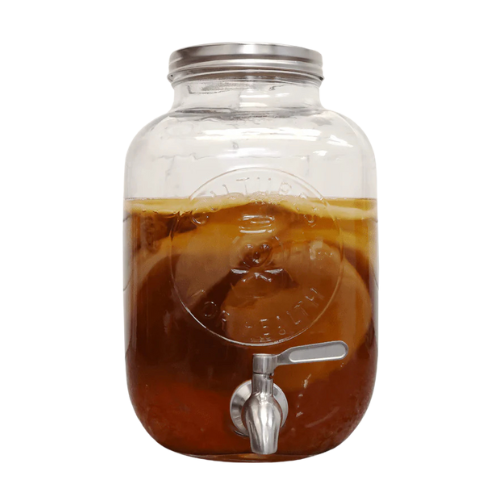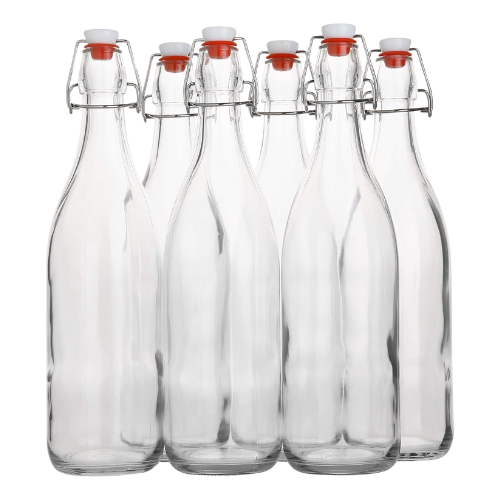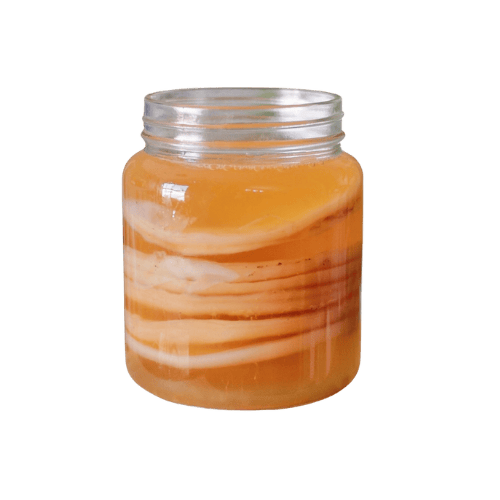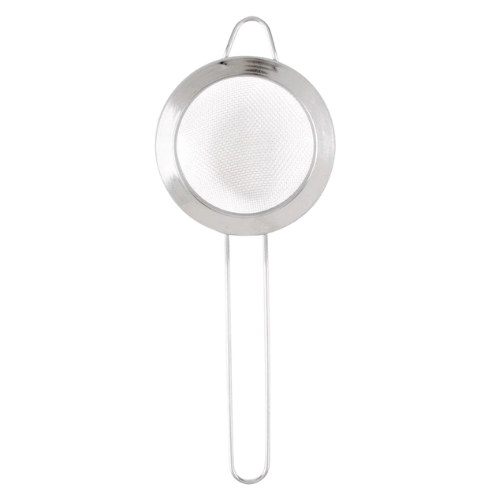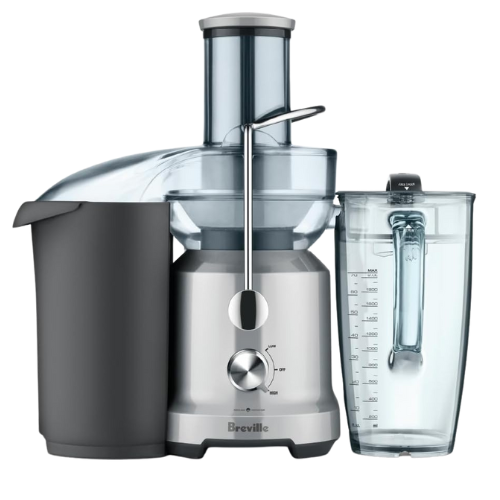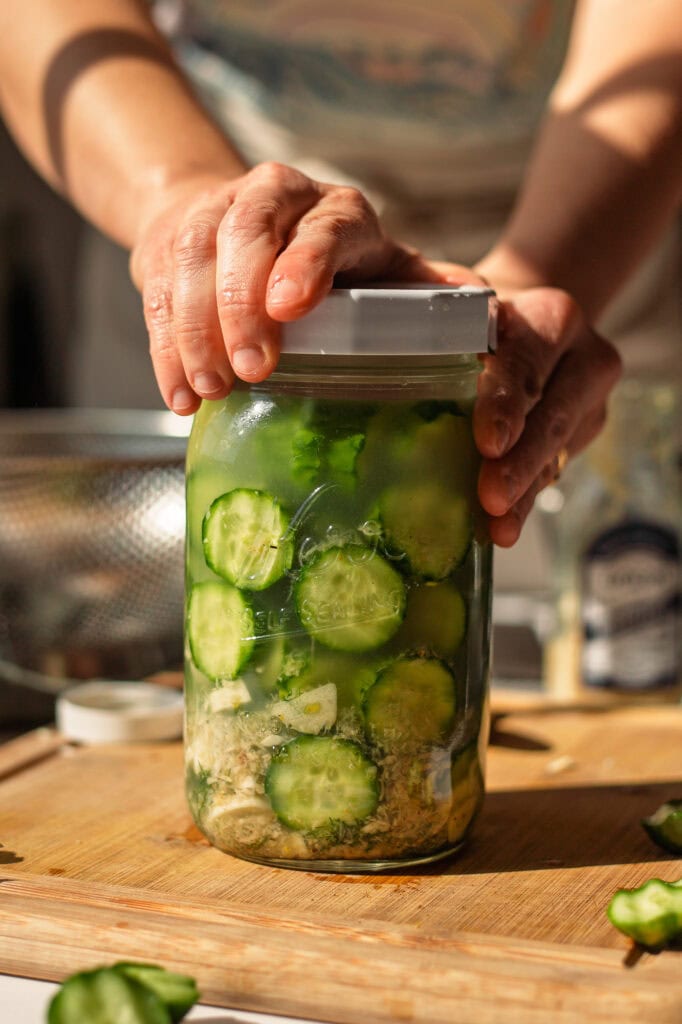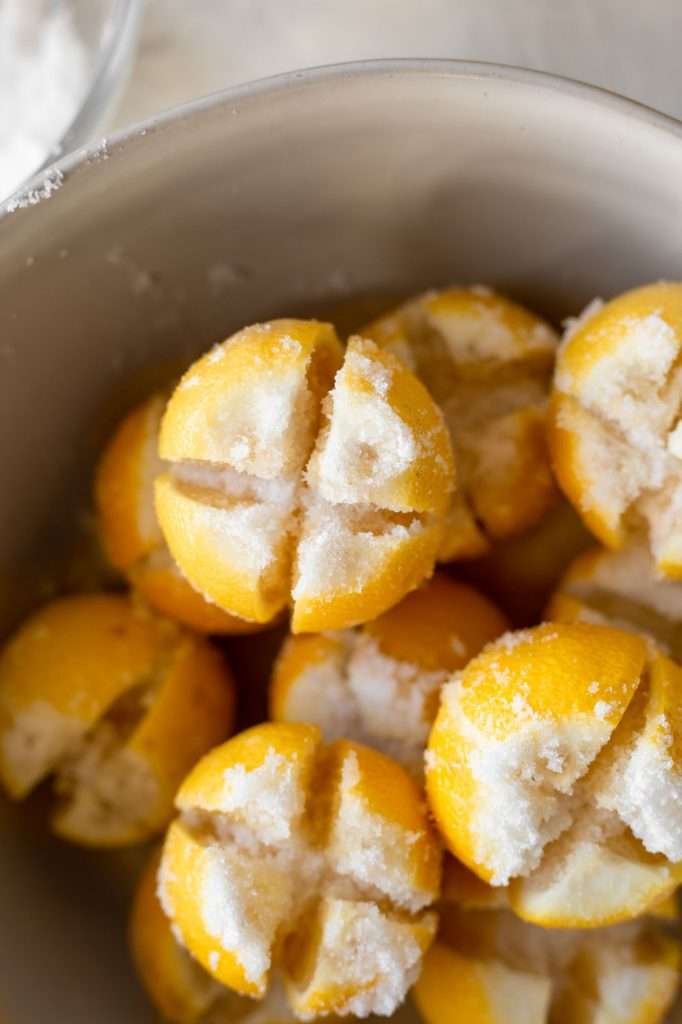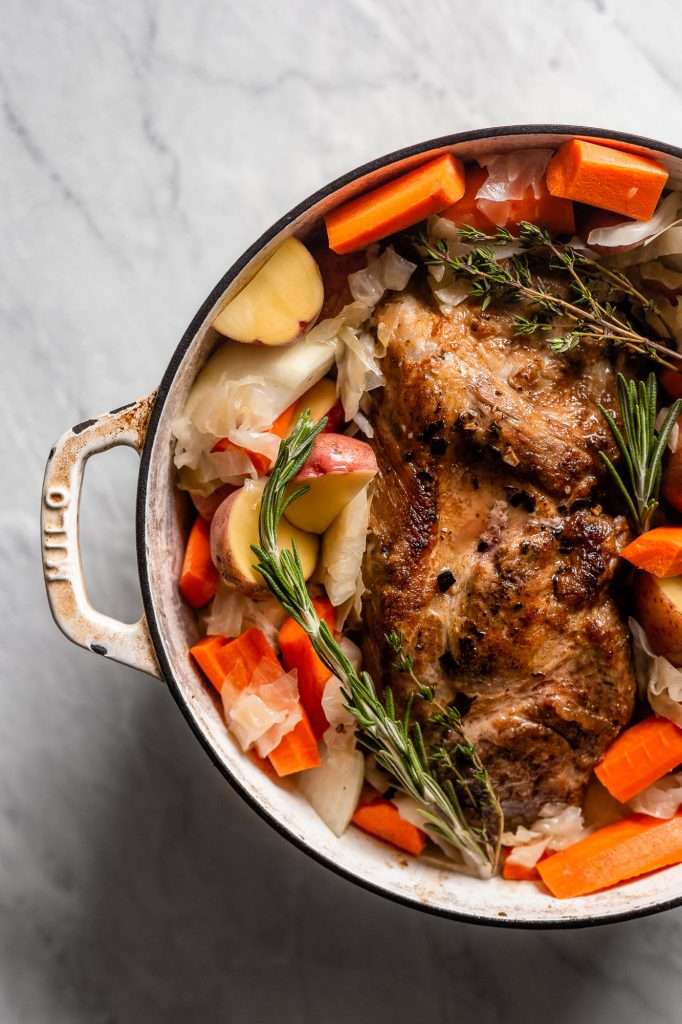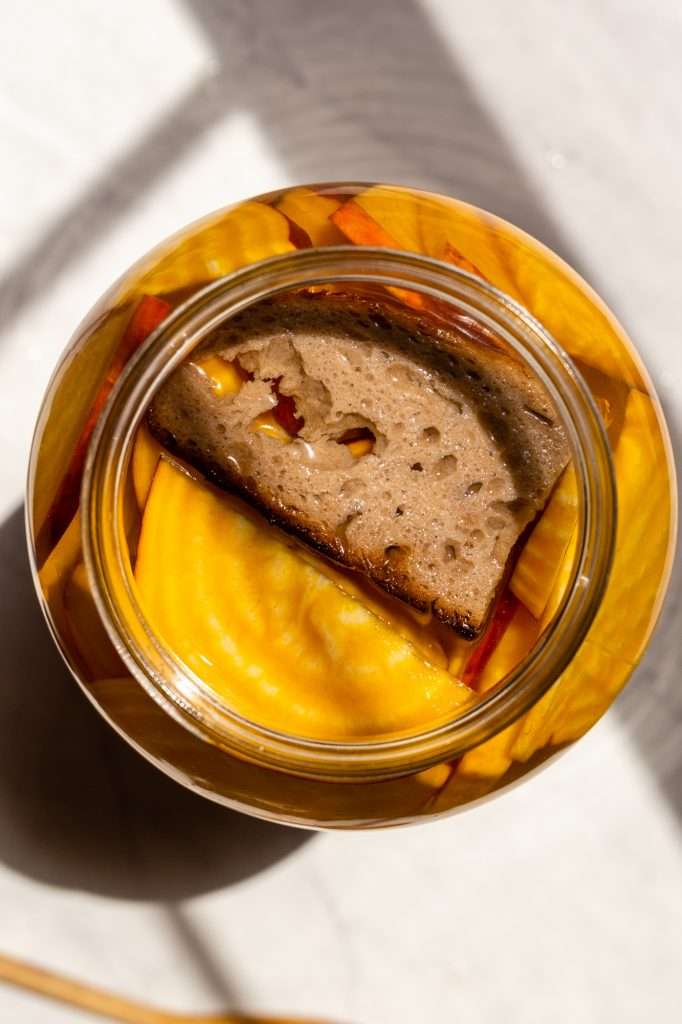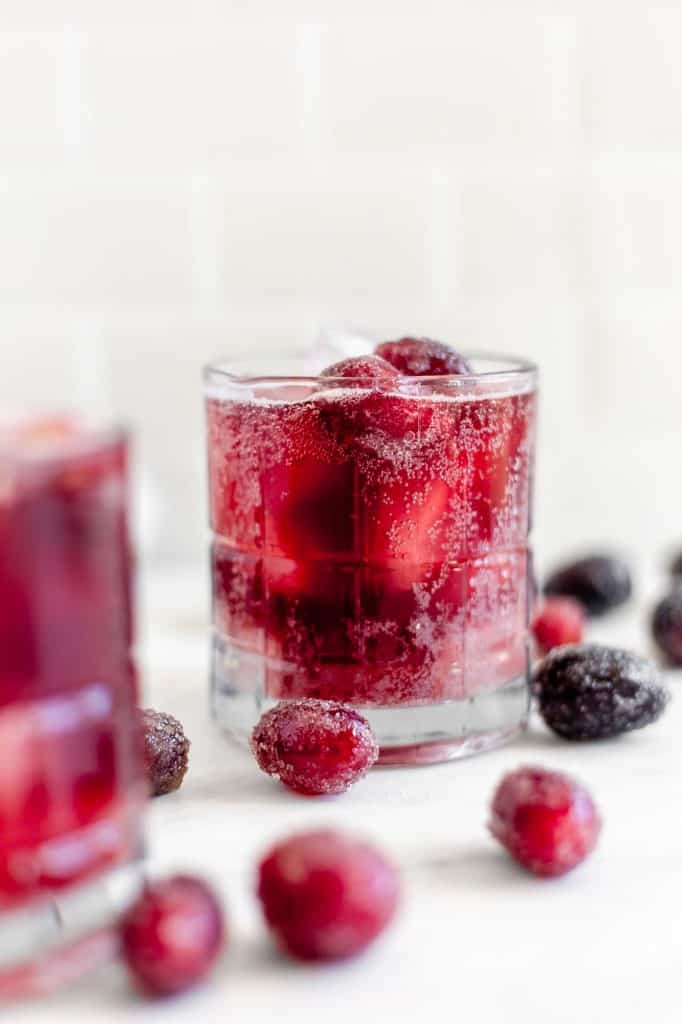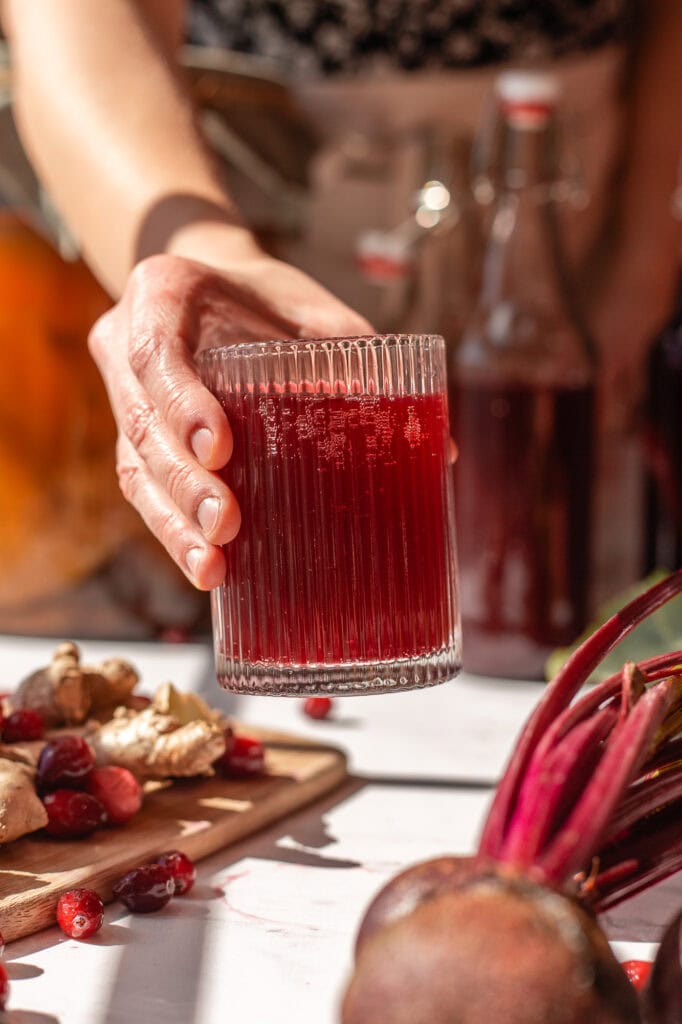Why Pomegranate Kombucha is So Good For You
Pomegranate kombucha made with a blend of pomegranate juice and orange juice is simple yet delicious and super healthy. It’s packed with antioxidants, probiotics, and immune-supporting nutrients. Pomegranate juice is rich in polyphenols, which help fight oxidative stress and reduce inflammation. While orange juice provides a natural dose of vitamin C to support immune function. Combining these two powerhouse ingredients with kombucha’s naturally fermented probiotics gives you a drink that promotes gut health, digestion, and overall vitality.
Beyond its nutritional benefits, pomegranate kombucha has a naturally vibrant, fruity flavor with the perfect balance of tartness and sweetness. The fermentation process enhances the depth of the pomegranate’s bold taste while mellowing out the acidity of the orange juice, creating a smooth, refreshing sip. Plus, the natural sugars in the juices feed the kombucha culture, encouraging a lively second fermentation and a satisfyingly fizzy final brew. It’s a delicious way to nourish your body while enjoying a naturally effervescent, probiotic-rich drink!
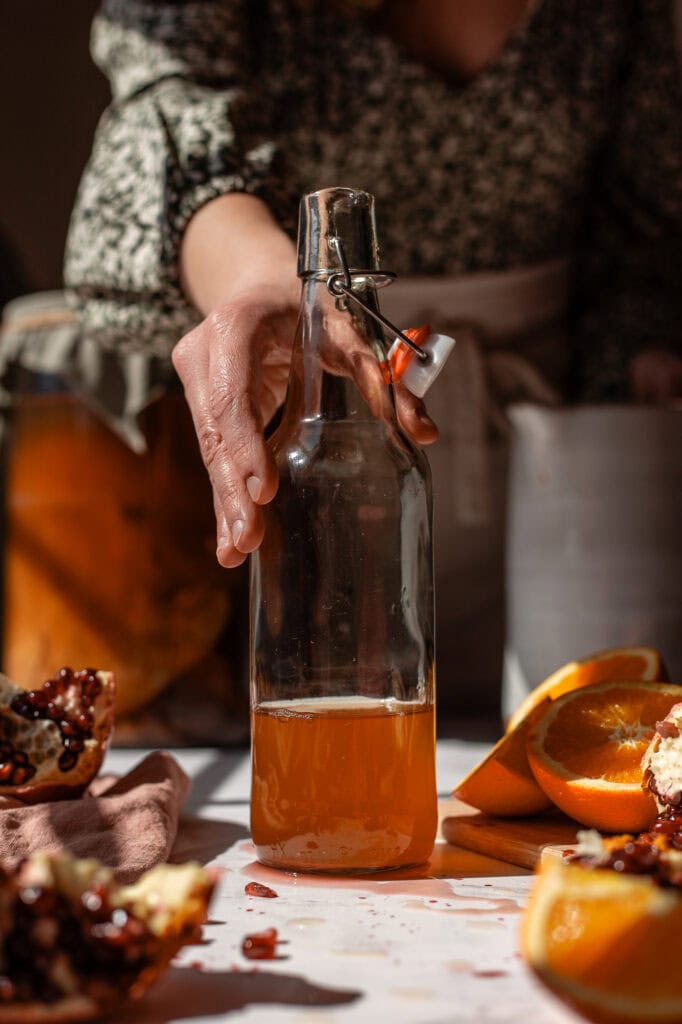
Pomegranate Kombucha Benefits
This nutrient-dense powerhouse supports overall health. The combination of fermented probiotics, polyphenol-rich pomegranate juice, and vitamin C-packed orange juice makes it an excellent choice for gut health, immunity, and inflammation. Here’s how each component contributes to your well-being:
- Gut Health & Digestion: Kombucha is rich in probiotics, which help maintain a balanced gut microbiome. A healthy gut supports digestion, boosts nutrient absorption, and may even improve mood and energy levels.
- Powerful Antioxidant Protection: Pomegranate juice contains high polyphenols, flavonoids, and punicalagins, which combat oxidative stress and reduce free radical damage (key factors in aging and chronic disease prevention).
- Immune System Support: Orange juice is an excellent source of vitamin C, an essential nutrient for immune function. It helps fight off infections, supports collagen production, and enhances iron absorption.
- Heart Health Benefits: Pomegranate juice has been shown to lower blood pressure, improve cholesterol levels, and support arterial health, benefiting cardiovascular wellness.
- Anti-Inflammatory Properties: Both pomegranate and kombucha contain anti-inflammatory compounds that may help reduce joint pain, muscle soreness, and overall inflammation.
- Metabolism & Detoxification: The organic acids in kombucha, such as acetic acid and gluconic acid, support liver detoxification and may aid in metabolism and fat oxidation.
Drinking pomegranate kombucha regularly provides a delicious way to nourish your gut, fight oxidative stress, and support your overall health while enjoying a naturally fizzy and flavorful drink.
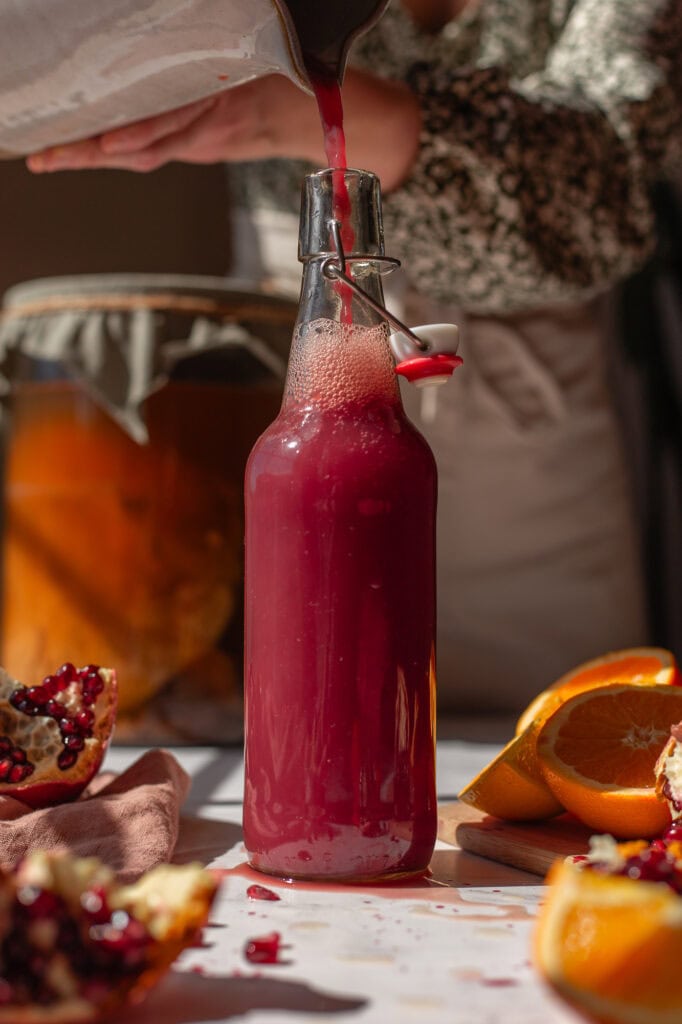
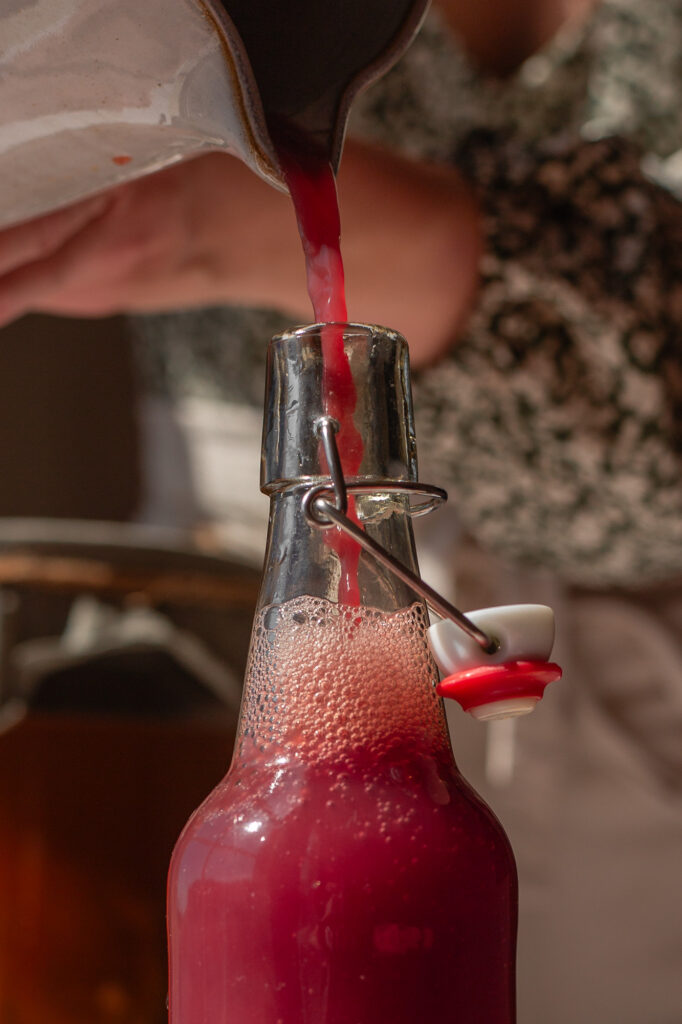
What is Kombucha Secondary Fermentation
Secondary fermentation is where kombucha transforms from a tangy fermented tea into a fizzy, flavorful probiotic drink. First, you remove the SCOBY once the initial fermentation is complete and transfer the fermented tea into carbonation-safe bottles. Then you add a little sugar (usually in the form of fruit juice). This added sugar feeds the remaining yeast and bacteria, triggering a second round of fermentation inside the sealed bottles.
As the yeast consumes the sugars, it produces natural carbonation, creating that satisfying effervescence kombucha is known for. Beyond just adding fizz, secondary fermentation is also where kombucha develops deeper, more complex flavors. The additional fermentation time allows the ingredients—fruit juice, herbs, or spices—to infuse into the tea, balancing its acidity and enhancing its taste. This process also continues to enrich the probiotic content, making kombucha more enjoyable to drink and even more beneficial for gut health.
Secondary fermentation results in a bubbly, flavorful brew packed with beneficial microbes and nutrients, without artificial carbonation or sweeteners.
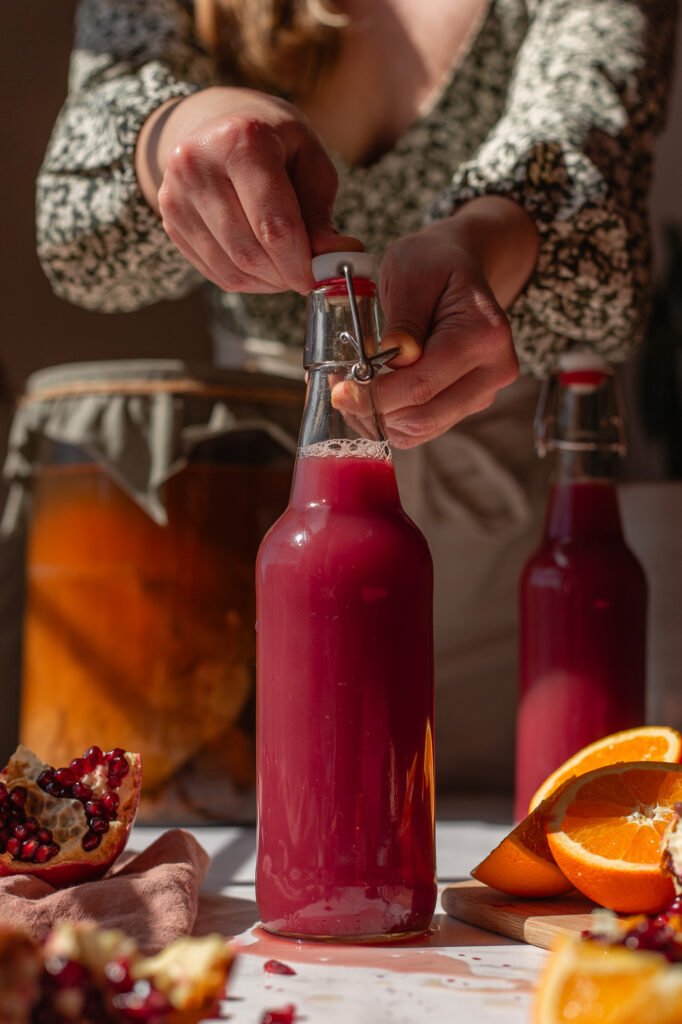
Kombucha Fermentation Supplies
To make this kombucha secondary fermentation recipe, you will need:
- Fermented tea from primary fermentation
- Pomegranate juice
- Orange juice
- Carbonation-safe bottles
- Funnel
The Best Pomegranate Kombucha Recipe
To make pomegranate orange kombucha, ensure you have carbonation-safe bottles for secondary fermentation. This recipe yields six cups, so you’ll need about three 16-ounce bottles. You can use fresh-pressed juice (see notes) or bottled 100% juice (ensure it has no additives).
Begin by mixing the pomegranate and orange juice. Fill each bottle halfway with fermented sweet tea from the primary fermentation, then top it off with the juice mixture, leaving about one inch of headspace to allow for carbonation. Secure the lid and gently invert the bottle a couple of times to mix.
Let the bottles ferment at room temperature (70-80°F) for about five days. After this time, carefully open one bottle to check for carbonation. If it’s fizzy, transfer it to the refrigerator to slow fermentation. If not, let it ferment for a few more days, checking periodically until it reaches your desired level of carbonation. Once refrigerated, your kombucha is ready to enjoy!
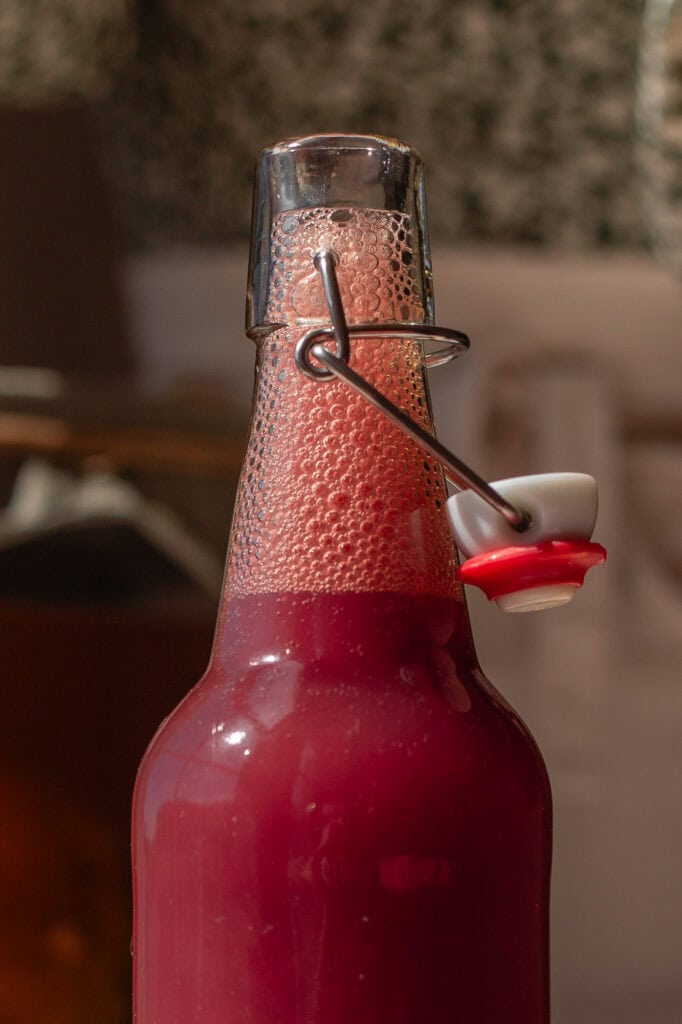
FAQs
How long does pomegranate kombucha take to ferment?
This secondary fermentation recipe takes 5 days to ferment. If you consider primary fermentation, the whole kombucha brewing process takes about 2 weeks.
Does Kombucha Detox Your Liver?
Kombucha contains organic acids, antioxidants, and probiotics that may support liver health, but the idea that it directly “detoxes” the liver is misleading. The liver is a powerful detox organ, naturally filtering toxins and metabolizing compounds. However, kombucha does contain glucuronic acid, a compound that plays a role in the body’s natural detoxification process by helping the liver bind and eliminate toxins. Additionally, its antioxidants, particularly from tea polyphenols, may help reduce oxidative stress and inflammation, which can contribute to overall liver function.
While kombucha supports liver health, it should not be seen as a cure-all or a replacement for a balanced diet and hydration, both essential for proper detoxification.

What is the best ratio of fruit juice to kombucha?
The juice ratio is slightly adjustable. The best ratio for lower sugar is 3 parts kombucha and 1 part juice. For slightly sweeter, as with this recipe, I do half kombucha half juice.

Pomegranate Kombucha Secondary Fermentation Recipe
Boost your gut health with this refreshing, antioxidant-rich pomegranate kombucha! Made with fresh pomegranate and orange juice, this fizzy, probiotic drink is packed with flavor and nutrients.
- Prep: 10 minutes
- Total Time: 120 hours 10 minutes
Ingredients
- about 4 cups fermented sweet tea from primary fermentation
- 1.5 cups pomegranate juice
- 0.5 cup orange juice
Instructions
- It is vital that you use carbonation safe bottles for secondary fermentation. This recipe makes 6 cups, so I use three 16-ounce bottles. You can use fresh pressed juice (see notes) or bottled pasteurized juice; both work great (ensure it’s 100% juice, no additives).
- Mix the pomegranate and orange juice.
- Fill a carbonation safe bottle about 60% to 75% full with fermented sweet tea from primary fermentation.
- Top off the bottle with the juice mixture so there is about an inch of headspace left in the bottle.
- Secure the bottle lid and gently invert it a couple times to mix.
- Allow it to ferment at room temperature (70-80 degrees F) for about 4 to 5 Days.
- Carefully open the lid to see if it is carbonated to your liking. If it is refrigerate, if not continue to ferment for a few more days, carefully checking the carbonation again.
- Keep refrigerated.
Notes
- If using fresh pressed juice I suggest heating it to 145° F for a few minutes then cooling before using. This ensures no wild microbes get introduced into the kombucha.
- The juice ratio per bottle is slightly adjustable. The best ratio for lower sugar is 3 parts kombucha and 1 part juice. For slightly sweeter, I do half kombucha half juice.



